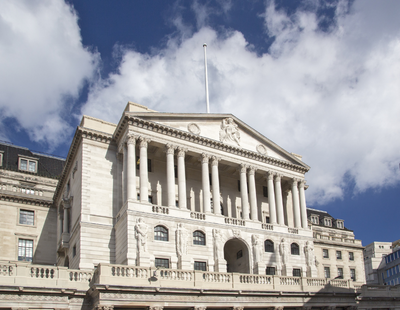
The Bank of England’s monetary policy committee meets again this week with a further interest rate rise likely if base rate is increased yet again.
Official inflation figures are due out on Wednesday and then the MPC meets 24 hours later.
Most financial commentators predict a base rate rise by 0.5 per cent to 3.5 per cent.
Susannah Streeter, senior investment and markets analyst at business consultancy Hargreaves Lansdown, says: “The last time it was above 3.0 per cent was 14 years ago, as the effects of the financial crisis were taking hold and the Bank was in the process of rapidly reducing rates to help keep the costs of borrowing down and help companies and consumers.
“This time, even though the UK is heading into recession, the Bank is still set to ratchet rates up further because inflation is seen as a greater threat to the economy. The base rate is set to rise to an expected peak of between 4.5 to 4.75 per cent by the middle of next year.’’
A Reuters poll of senior economists suggests there’s a 78 per cent chance that the Bank will raise rates by half a percentage point to 3.5 per cent - the remaining 22 per cent chance is of a still bigger rise to 3.75 per cent, according to a Reuters poll.
"To our minds, another 50 basis point increase looks likely" Investec economist Philip Shaw says. "The BoE has made it pretty clear that inflation is too high. It's concerned about the tightness of the labour market. And there are big risks to its projections."
Meanwhile a forecast released today by UK Finance - the trade body for Britain’s mortgage lenders - suggests that cost of living pressures and rising interest rates to reduce demand for house purchases between 2023 and 2024.
The body says: “We expect the number of property transactions to fall 21 per cent next year (from around 1.2m in 2022 to 1m in 2023), with the value of lending to homeowners dropping 23 per cent, and lending to landlords falling 27 per cent. Despite the anticipated fall in activity, the UK has a strong mortgage and housing market which will remain competitive.
“At the same time, we expect to see strong demand for refinancing as around 1.8 million fixed rate mortgage deals are scheduled to end in 2023.
“Affordability pressures facing borrowers will mean some borrowers, particularly amongst lower income brackets, may find remortgaging options more limited on the open market. However, with widespread availability of internal product transfers, we expect refinancing overall to be strong through next year. We expect to see around £212 billion of product transfers to take place next year, compared with an estimated £197 billion in 2022.”







.jpg)






%20-%20IMAGE%20Client%20Accounting%20%E2%80%93%20what%20are%20your%20options.jpg)





Join the conversation
Jump to latest comment and add your reply
The quicker they go up the quicker they will come back down, got to take our medicine to get better.
Please login to comment